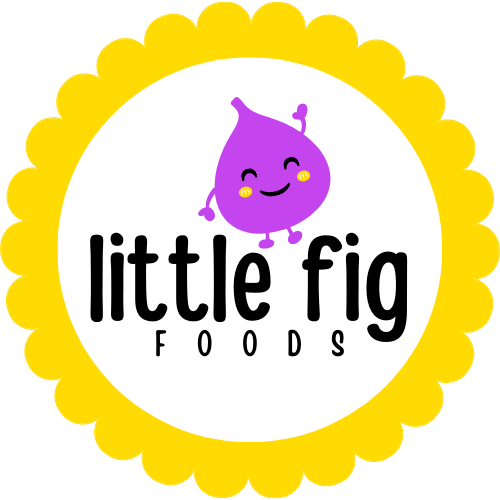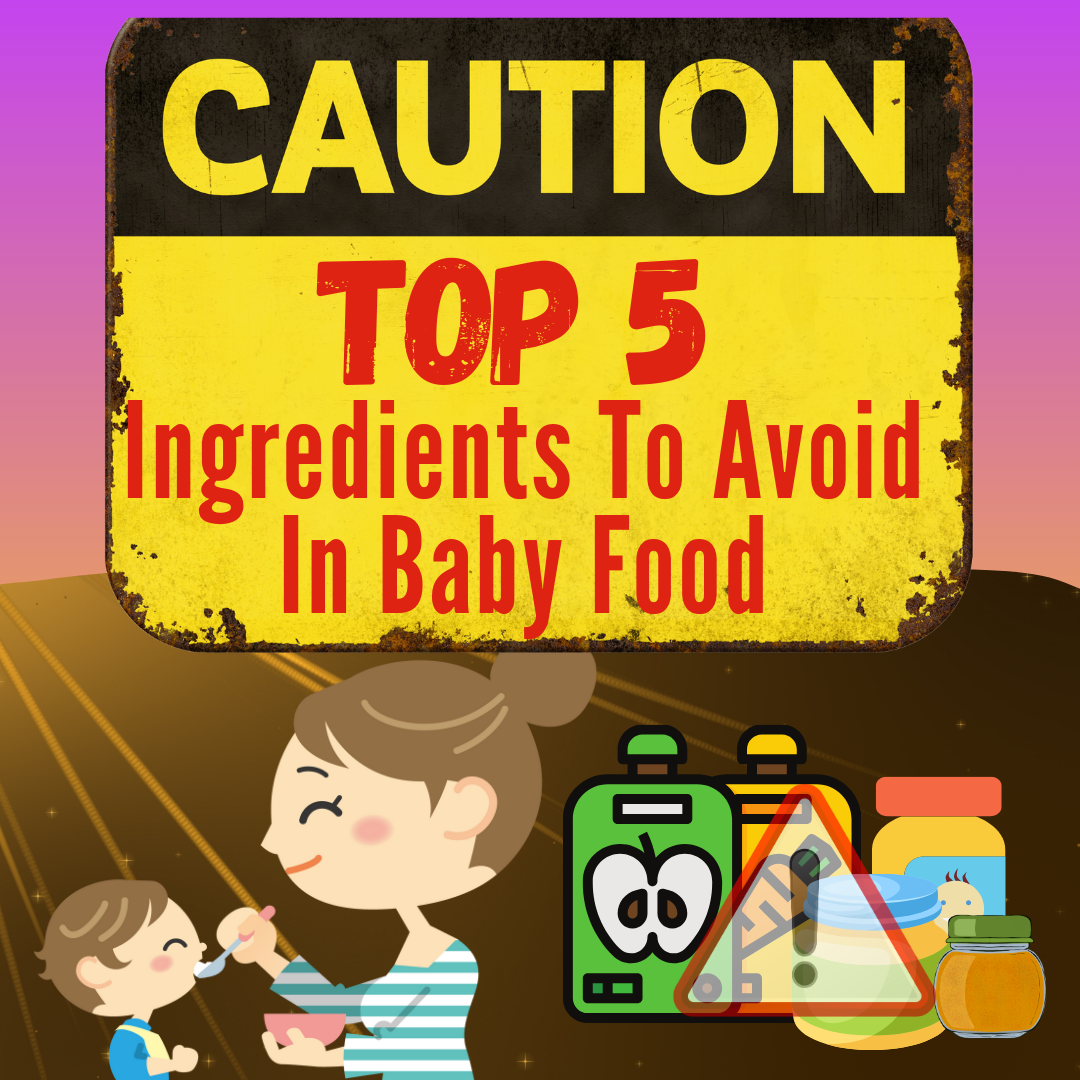Navigating the baby food aisle can feel overwhelming for parents, with endless options that leave us spoilt for choice. But are all baby foods created equal? In this guide, let's explore the top 5 ingredients to avoid when choosing baby food. Armed with this knowledge, you will be empowered to scrutinise those food labels and make informed for your precious little ones!
Sugar

One primary ingredient to avoid in commercial baby food is excessive sugar. While a touch of sweetness can make food more palatable, many baby foods contain added sugars that contribute to an increased risk of childhood obesity and set the stage for a preference for overly sweet tastes. Opt for products with little to no added sugars.
It is essential for parents to be aware of the various forms of sugar that may be present in baby snacks and food.
Here are some common examples:
- Sucrose: This is table sugar, often used to sweeten baby foods.
- Glucose: Often used as a sweetening agent, it's a simple sugar that can contribute to the overall sugar content in baby foods.
- High Fructose Corn Syrup: A sweetener made from corn, often used in commercial baby snacks.
- Fruit Juice Concentrates: These are concentrated forms of fruit juices that can add a significant amount of sugar to baby foods.
- Brown Rice Syrup: This is sometimes used as a sweetener in organic or "natural" baby products.
- Agave Nectar: While often marketed as a healthier alternative, it's high in fructose and is a concentrated sweetener.
- Honey: Should be avoided for infants under one year due to the risk of botulism.
- Molasses: A byproduct of sugar production, it's a concentrated sweetener.
High Sodium Content

Sodium, or salt, is another ingredient that should be monitored closely. Many processed baby foods contain higher-than-necessary levels of salt, which can strain a baby's immature kidneys and potentially lead to a preference for salty foods later in life. It's essential to consider not only salt but also other sources of sodium.
Soy sauce is a common Asian condiment that contributes to the sodium levels in a dish. While soy sauce can add flavour to meals, it's wise to use it sparingly or none at all, especially when preparing baby food.
Do keep a look out for salt and soy sauce in ingredient list of baby food and opt for low to no added sodium options.
Preservatives and Artificial Additives

Preservatives and artificial additives like food colouring and artificial flavours may be added to enhance the appearance or shelf life of baby food, but they offer no nutritional benefit and can sometimes lead to adverse reactions. Opt for products no additives and choose only products that use only use natural ingredients to ensure baby is getting the best nutrition without unnecessary additives.
Common preservatives and flavouring include:
| Preservatives | Flavour Enhancers |
| Sodium Benzoate (E211) | Monosodium Glutamate (MSG) (E621) |
| Potassium Sorbate (E202) | Ribonucleotides (E627, E631, E635) |
| Nitrites (E249–E252) | Aspartame (E951) |
| Sulphites (E220–E228) | Saccharin (E954) |
Unhealthy Fats

Keep an eye out for unhealthy fats like trans fats or hydrogenated oils, such as shortening and palm oil. While fats are essential for a baby's growth and brain development, it's important to choose sources of healthy fats, such as those from avocados, olive oil, or fatty fish. Trans fats, on the other hand, can have detrimental effects on heart health and should be avoided.
Unnecessary Fillers

Some baby foods may contain fillers like cornstarch, tapioca starch, or other refined carbohydrates that add bulk but little nutritional value. These ingredients may contribute to excessive calorie intake without the essential nutrients that your baby needs for optimal growth. Prioritise baby foods that are nutrient-dense and contain whole, recognisable ingredients.
Now you are well equipped to decode the food labels and make the best choices when choosing baby food and snacks for your little one! You’ve got this!

